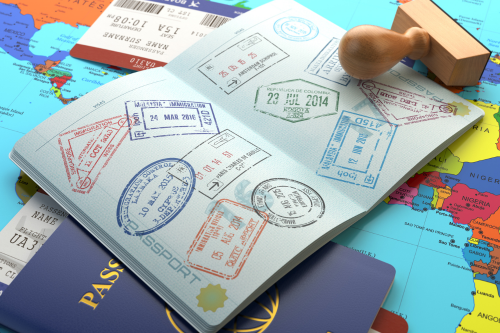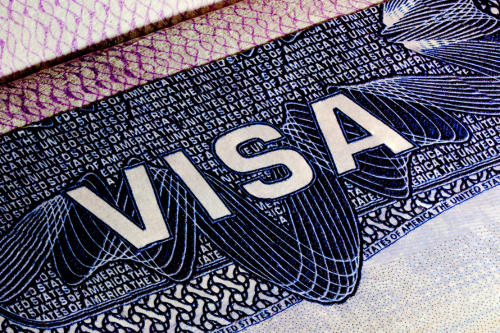Josh Goldstein dives into five reasons your visa might be stuck in 221g administrative processing and shares some expert tips to help you move things along. 221g means your visa has hit a roadblock and unfortunately many people face these delays. Read on for crucial insights and practical advice to get your visa application back on track!
Top 5 Reasons for Administrative Processing Delays
Section 221(g) of the Immigration and Nationality Act can cause delays in visa processing, leading to what is known as 221g administrative processing. Understanding the administrative processing visa USA delays can help you navigate the delays and additional steps required for your visa application.
1. Your Religious Affiliation or Nationality
Sometimes, your religion or country of origin can affect your visa application. If you are from a Muslim-majority country or have a nationality that the U.S. has a strained relationship with, you might face delays. This can be part of administrative processing. For example, if you are a Christian from Lebanon or from a country like Iran or Pakistan, you might face obstacles due to how your country is perceived overall.
Administrative processing in U.S. visa cases can be influenced by these factors, potentially causing longer processing times.
2. Questionable Relationship with the United States
Your country's political relationship with the U.S. can impact your 221(g) visa application. If you come from countries like Cuba, Venezuela, China, or Afghanistan, political issues can cause admin processing US visa delays. This administrative processing can be a result of ongoing political disputes between the U.S. and your home country.
Understanding what is administrative processing helps explain why your visa might be delayed due to political reasons.

3. Extensive Travel History
If you have traveled extensively, especially to countries with strained relations with the U.S., your visa might face delays. Humanitarian trips, such as traveling to Afghanistan or Pakistan, can trigger 221g administrative processing. This happens because your travel history might raise additional questions or concerns, leading to extra checks and a longer wait for your visa.
Administrative processing can add extra steps to ensure all travel-related concerns are addressed.
4. Gender
In some cases, men might experience longer delays in 221g administrative processing compared to women. Men often take longer to process their visa applications, though the exact reasons for this are not always clear.
221g Administrative processing can vary based on the applicant's gender, impacting how long your visa application takes to process.
5. Military Service
If you have served in the military, it can affect your visa application. Military service might trigger administrative processing due to additional checks required. Although this might seem unfair, it's a factor that can contribute to delays in getting your visa approved.
221g Administrative processing in U.S. visas can sometimes be influenced by your military background, leading to longer wait times.

Resources and 221g Administrative Processing Support
Navigating admin processing can feel overwhelming, but you don’t have to go through it alone. Josh and his team of U.S. immigration experts have more than 20 years of experience dealing with 221g administrative processing delays.
We recommend joining the Administrative Processing, 221G, and Visa Delay Issues group for support. You can also download our free Cheat Sheet that provides guidance on how you could move your visa application along after been placed in 221g administrative processing.
What is a Mandamus Lawsuit and How Can It Help?
If your visa is taking too long because of 221g administrative processing, you might be able to use a mandamus lawsuit to speed things up. Here’s a simple guide to what that means and how it might help you.
What is a Mandamus Lawsuit?
A mandamus lawsuit is a legal way to ask a court to make a government agency do its job. If your visa application is stuck, you can ask the court to force the agency to make a decision or move forward with your case.
How Can a Mandamus Lawsuit Help?
- Speed Up Delays: It can help make the agency process your visa faster if it’s been stuck for a long time.
- Hold the Agency Accountable: It makes sure the agency is doing its job and not just delaying your case without reason.
- Provide a Solution: It’s a way to get help if you’ve tried everything else and still haven’t gotten a decision.
When Should You Use It?
Talk to a Boston Writ of Mandamus lawyer to see if a mandamus lawsuit is right for you. This might be a good option if your visa has been delayed for a long time and you need a quicker solution.
Take Action Today!
If you’re struggling with 221g administrative processing, seek legal advice and explore ways to speed up your case. Share your case today to set up a case evaluation and help you find the best way forward. We’ve helped many clients overcome long delays in 221g administrative processing. Act now!
Frequently Asked Questions
Here’s a list of common questions (FAQs) to help answer any other questions you may have about this topic. It's important to stay informed about US visa admin processing to effectively manage your application and understand any potential delays.
1. Why is my U.S. visa taking longer?
Visa applications can face delays due to 221g administrative processing. This extra time allows U.S. agencies to review your case and check for security issues. Different agencies might need to review your materials, which can affect processing times.
2. How long does administrative processing take?
It's important to know that 221g processing time can vary. While there isn’t a set maximum, being prepared and informed can help manage expectations. What is the maximum time for administrative processing depends on your circumstances.
3. What affects USCIS or Consulate processing times?
The visa backlog occurs when there are more cases than can be processed quickly. As of September 2023, about 314,853 people were waiting for an interview, according to the latest NVC report. This backlog contributes to longer processing times for immigrant visas.
4. Can I sue USCIS for unreasonable delays?
The time it takes to process a visa depends on several factors: the number of applications, the workload, how quickly you respond to requests, and any changes in policies. Understanding these factors can help you manage your expectations regarding US visa approval time.
5. Can I file a mandamus lawsuit by myself, or do I need a US immigration lawyer?
Yes, you can file a Writ of Mandamus if your visa processing is taking too long. This legal action can help expedite an unreasonable delay. You have the right to a decision on your immigrant visa application.
6. What are my options when my visa is under 221g administrative processing?
There’s no formal way to challenge administrative processing directly. However, you should send any additional documents to the consular office and consult with an experienced U.S. immigration attorney.
7. Is 221g administrative processing a visa denial?
When your visa goes into administrative processing, it might say "refused" online. This doesn’t mean your visa is denied; it just means it’s not approved yet.
Posted in: Blog
